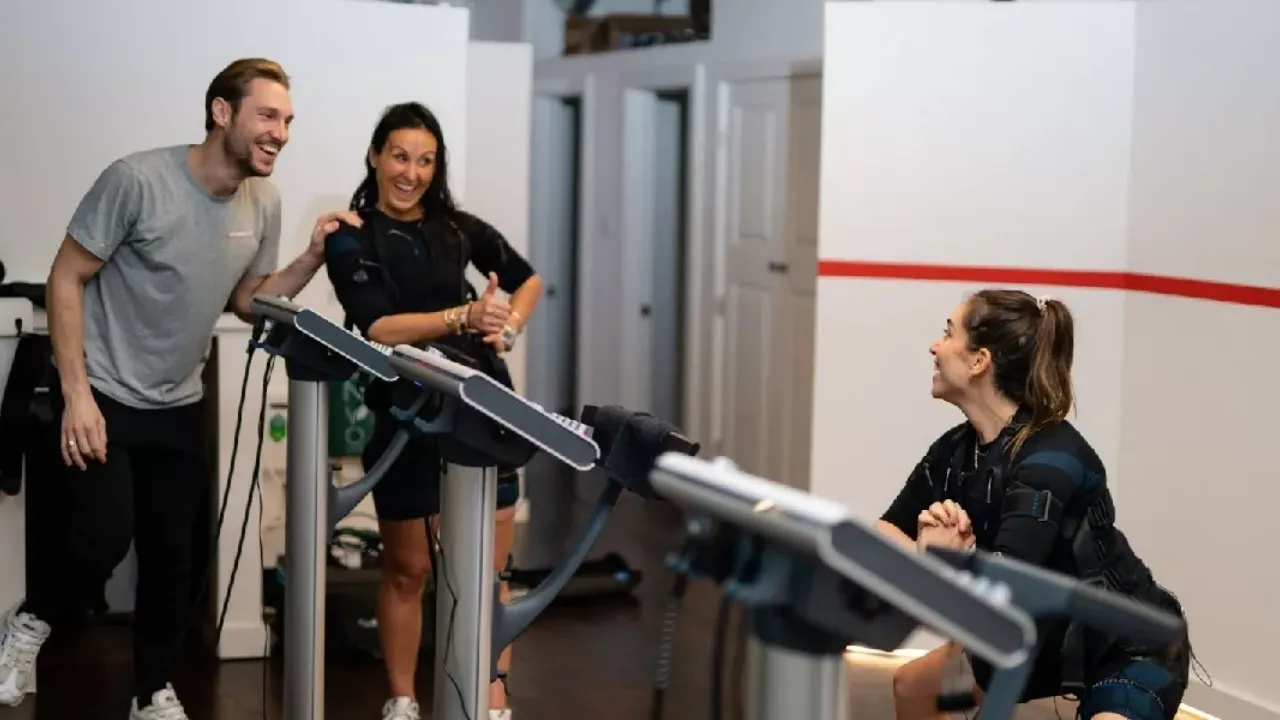Table of Contents
ToggleIntroduction
Physical therapy is a vital component of the healing journey, and Baptist Health Floyd stands at the forefront, offering unparalleled care through its Physical Therapy services. Whether you’re recovering from surgery, managing a chronic condition, or seeking preventive care, Baptist Health Floyd Physical Therapy is committed to guiding you on your path to recovery and overall well-being.
Understanding the Difference: Physical Therapy vs. Occupational Therapy
Before delving into the specifics of Baptist Health Floyd Physical Therapy, it’s essential to distinguish between physical therapy (PT) and occupational therapy (OT). While both focus on rehabilitation, PT primarily addresses movement and physical function, whereas OT concentrates on improving daily life activities. The selection between the two options is contingent upon individual requirements and objectives.
Exploring Lucrative Avenues in Physical Therapy Careers
Curious about the financial aspect of physical therapy careers? The type of physical therapy that often yields higher salaries is specialized areas such as sports or orthopedic therapy. These fields demand advanced skills and expertise, making them lucrative options for experienced practitioners.
Regaining Muscle Strength: A Primary Goal of Physical Therapy
One of the core objectives of physical therapy is to help patients regain muscle strength. Therapists employ various techniques, including targeted exercises, resistance training, and manual therapies, to address muscle weakness resulting from injuries, surgeries, or chronic conditions.
The Four Main Types of Physical Therapy
Physical therapy encompasses various specialties, with four main types being orthopedic, geriatric, neurological, and cardiovascular and pulmonary therapy. Each type caters to specific conditions and populations, ensuring a comprehensive approach to rehabilitation.
The Challenge of Physical Therapy: What to Expect
Embarking on a physical therapy journey can pose challenges. Patients often find the process demanding, both physically and mentally. Overcoming pain, adapting to new exercises, and maintaining consistency can be the hardest parts, but with the right guidance and support, these challenges are surmountable.
Demystifying the Terms: Physical Therapist vs. Physical Therapy
A common point of confusion is the difference between a physical therapist and physical therapy. Put simply, a physical therapist is the healthcare professional providing treatment, while physical therapy is the overall discipline focused on restoring and improving physical function.
MPT vs. DPT: Weighing the Degrees in Physical Therapy
The choice between a Master of Physical Therapy (MPT) and a Doctor of Physical Therapy (DPT) often arises for aspiring physical therapists. In recent years, the DPT has become the standard, providing a more comprehensive and advanced educational foundation.
DPT vs. MD: Deciphering Medical Titles
Distinguishing between a Doctor of Physical Therapy (DPT) and a Medical Doctor (MD) is crucial. While both contribute to patient care, a DPT specializes in physical rehabilitation, focusing on musculoskeletal and neuromuscular conditions, whereas an MD is a medical doctor with broader expertise in various medical disciplines.
Kinesiology vs. Physical Therapy: Unraveling the Differences
Is kinesiology the same as physical therapy? No, they differ in focus and scope. Kinesiology is the study of human movement and exercise science, while physical therapy is the application of therapeutic interventions to restore physical function. Both contribute to overall well-being but in distinct ways.
The Role of a Kinesiologist: Understanding the Profession
A kinesiologist is an expert in the examination of human motion and mobility. Their role involves assessing, managing, and preventing movement-related issues. Whether you’re an athlete aiming to enhance performance or an individual seeking injury prevention, consulting a kinesiologist can provide valuable insights and personalized strategies.

Kinesiotherapist: Bridging Exercise and Rehabilitation
A kinesiotherapist focuses on therapeutic exercise programs to improve endurance, strength, and mobility. They play a crucial role in rehabilitation, particularly for individuals with chronic conditions or disabilities. Collaborating with a kinesiotherapist can enhance the effectiveness of rehabilitation programs.
Is Seeing a Kinesiologist Worth It?
Wondering about the benefits of seeing a kinesiologist? The answer lies in the personalized approach to health and fitness. A kinesiologist tailors exercise programs to individual needs, making it a worthwhile investment for those seeking targeted and effective strategies for improvement.
Conditions Treatable by Kinesiology
Kinesiology can address a range of conditions, including musculoskeletal issues, sports injuries, and chronic diseases. Whether you’re looking to recover from an injury, enhance athletic performance, or manage a health condition, kinesiology offers a holistic approach to well-being.
The Rising Popularity of Kinesiology
Why is kinesiology gaining popularity? The holistic and personalized nature of kinesiology aligns with the growing emphasis on preventive and individualized healthcare. As more people recognize the importance of proactive well-being, kinesiology becomes a sought-after avenue for maintaining and improving health.
How Often Should You Have Kinesiology?
The frequency of kinesiology sessions depends on individual goals and needs. For rehabilitation, sessions may be more frequent initially and taper off as progress is made. For fitness and preventive purposes, regular sessions, such as once or twice a week, may be beneficial to maintain optimal movement and overall health.
Anchored Hyperlinks for Further Information
For additional insights on health and wellness, explore U Medical Bank. Their informative articles cover a range of topics, offering valuable perspectives to complement your journey toward optimal health.
Baptist Health Floyd Physical Therapy stands as a beacon of comprehensive and personalized care, addressing various aspects of rehabilitation and well-being. Whether you’re on a recovery journey or exploring preventive strategies, trust Baptist Health Floyd Physical Therapy to nurture your path to optimal health and mobility.
Integrating Preventive Strategies with Baptist Health Floyd
Beyond the rehabilitation journey, Baptist Health Floyd Physical Therapy emphasizes preventive strategies to ensure lasting well-being. Our therapists collaborate with patients to develop personalized plans that not only address current concerns but also proactively work towards preventing future injuries and maintaining an active lifestyle.
Unveiling the Holistic Approach of Baptist Health Floyd
At Baptist Health Floyd, our holistic approach extends beyond physical therapy. We recognize the interconnectedness of mind, body, and spirit in achieving optimal health. Our therapists are not just healers; they are partners in your journey toward a balanced and fulfilling life.
Patient Stories: Triumphs in Rehabilitation
Realizing the transformative power of physical therapy is best exemplified through patient success stories. Baptist Health Floyd takes pride in the triumphs of individuals who have overcome challenges, regained mobility, and rediscovered a higher quality of life through our comprehensive rehabilitation programs.
Demystifying Degrees: MPT vs. DPT
The choice between a Master of Physical Therapy (MPT) and a Doctor of Physical Therapy (DPT) is often a significant consideration for aspiring physical therapists. While both degrees equip practitioners with essential skills, the industry trend favors the DPT for its comprehensive curriculum and advanced clinical training.
Navigating the Healthcare Landscape: DPT vs. MD
Understanding the distinctions between a Doctor of Physical Therapy (DPT) and a Medical Doctor (MD) is essential for informed healthcare decisions. A DPT specializes in musculoskeletal and neuromuscular rehabilitation, complementing the broader expertise of an MD. Together, these professionals contribute to comprehensive patient care.
The Essence of Kinesiology: A Bridge to Better Movement
Kinesiology, the study of human movement, serves as a bridge to better movement and overall health. Whether you’re recovering from an injury, seeking to enhance sports performance, or striving for preventive care, the insights and interventions provided by kinesiologists play a pivotal role in achieving your health goals.
Making Informed Decisions: Is Seeing a Kinesiologist Right for You?
Considering a visit to a kinesiologist? The decision hinges on your health and wellness objectives. If you value a personalized approach to fitness, movement, and injury prevention, consulting with a kinesiologist can be a valuable step towards achieving your health aspirations.
Tailoring Exercises for Optimal Health
A kinesiologist’s role extends beyond assessment; it involves tailoring exercise programs to meet individual needs. These programs focus on enhancing endurance, strength, and mobility, contributing to overall physical well-being, and aligning with your specific health goals.
Conditions Addressed by Kinesiology
Kinesiologists are equipped to address a spectrum of conditions, from musculoskeletal concerns to sports-related injuries and chronic diseases. The versatility of kinesiology makes it a valuable resource for individuals seeking comprehensive and personalized strategies for their health challenges.
The Growing Popularity of Kinesiology: A Shift towards Preventive Health
The increasing popularity of kinesiology reflects a broader societal shift towards preventive health. As individuals prioritize proactive well-being, kinesiology emerges as a valuable discipline that aligns with the evolving understanding of health as a holistic and individualized pursuit.
Crafting Your Wellness Routine: How Often Should You Have Kinesiology?
The frequency of kinesiology sessions depends on your specific health goals. For rehabilitation, more frequent sessions may be initially recommended, gradually tapering as progress is made. For those seeking ongoing fitness and preventive care, regular sessions, such as once or twice a week, can contribute to sustained optimal health.
Your Journey to Optimal Health Continues
Baptist Health Floyd Physical Therapy, coupled with insights from kinesiology, offers a comprehensive approach to your well-being. Whether you’re on a recovery path, exploring preventive strategies, or striving for enhanced performance, trust in the expertise of Baptist Health Floyd to guide you toward optimal health and mobility. Your journey continues, and we are here every step of the way.







